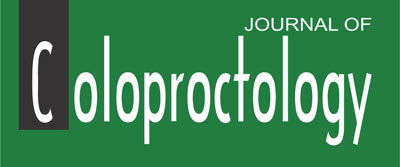OBJECTIVE: Evaluate the appropriateness of colonoscopy indication for neoplastic lesion detection in patients under age 50 with hematochezia. METHODS: Retrospective and cross-sectional study in patients who underwent colonoscopy, from 2002 to 2009. Inclusion criteria included patients with hematochezia over 20 years old. Exclusion criteria were: history of inflammatory bowel disease (IBD), polypectomy, family history of colorectal cancer (CRC), fecal occult blood (FOB), anemia, weight loss and personal history of cancer. Neoplastic lesions were stratified into proximal or distal to splenic flexure. RESULTS: 683 patients met the inclusion criteria in 5,000 colonoscopies registered. Median age was 49.46 years old (20 to 94 years old) and 486 patients (71.2%) were females. No proximal colon cancer was detected in the proximal group under 50 years old. Proximal advanced adenomas were diagnosed in one (0.9%) patient in the group of 30 to 40 years old (n=113) versus 7 (3.75%) in the group of 40 to 50 years old (n=187), with p=0.268. CONCLUSIONS: Malignant neoplastic lesions and advanced adenomas are uncommon and predominantly distal in the population between 30 and 50 years old, with hematochezia without risk factors for colorectal cancer (CRC). Therefore, flexible sigmoidoscopy appears to be sufficient as the initial method for evaluating these patients.
colonoscopy; colorectal neoplasms; adults; gastrointestinal hemorrhage









